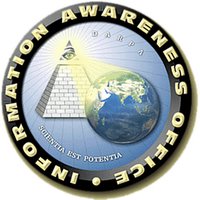The Corporate State--Nock's merchant-State--is real, but that doesn't mean it has totally blunted the forces of the market and prevented challengers from succeeding. The
Washington Post published a story Dec. 22 showing that Microsoft, despite all its advantages in the rigged marketplace, is under pressure on several important fronts. Software applications will increasingly be available through the Internet (see
Writely.com, which I used to write this), enabling users to avoid Microsoft products. Thus programs are being developed, the
Post reports, "that are deliberately not oriented toward Microsoft." Mozilla's open-source Firefox browser and Thunderbird e-mail client are already hits and getting bigger all the time. As the
Post put it: "Its [Microsoft's] financial growth is slowing--in the single digits in sales growth for fiscal 2005 over the previous year, for the first time in the company's history--and its stock has been flat for five years. It missed some of the most popular technology advances in recent years, such as searching the Internet and downloading music." Companies putting pressure on Microsoft, such as Google and Yahoo, didn't exist a few years ago. Of course, Microsoft itself started from nothing, as did Apple, Dell, and countless others. IBM was supposed to have made them impossible. Antitrust law is superfluous, although that is the least one can say about it.
The point is that for all the benefits the merchant-State bestows on today's insiders (copyright, patents, regulations, taxes, trade barriers, etc.), they are not so formidable that they can keep all outsiders out. No one person or group can foresee all crucial coming events or anticipate what consumers will want, perhaps least of all state-sheltered firms that feel safe and complacent. Microsoft is showing signs of the clumsy, stumbling One Big Company that Murray Rothbard wrote about. The
Post quotes management consultant Peter Cohan: "It's become a big, bureaucratic organization." Of course, not everyone agrees.
Does this mean the merchant-State does no harm? No, it does much harm. It makes it harder for challengers to get started and to succeed, reducing options for consumers and workers. But we shouldn't overstate its power. The market is a tough thing to squelch.







